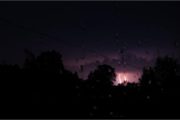Ancient Bloodlines
So you think you are Scottish? If so, be prepared for an ancestral surprise. Scotland, once known as Alba and Caledonia, has been inhabited for 14,000 years by a succession of migratory people, eons before it had a name. You may have the blood of ancient Picts, Gaels (Irish), Britons, Anglo-Saxons (Germans), Vikings (Norwegians), and Celts, running through your veins. Sometime in the distant past, two major groups, the Picts and the Gaels, amalgamated to form the dominant group, now known as Scots. Some Roman soldiers during more than 250 years of occupation of England may have hopped over Hadrian’ Wall to inter-breed with the wild tribes that the wall was built to contain. Even some English peasants may have sneaked across. The Romans, however, after years of repeatedly trying to conquer the wild tribes north of the wall, finally gave up, abandoned all of Britain and high-tailed it back to the European continent in 410 AD, never to return. It is difficult to believe that the mighty Roman Empire could not defeat the primitive, fierce warrior tribes of Caledonia, the Roman name for Scotland.
I am one of those individuals who claim Scottish heritage and so have long yearned to visit Scotland. To my surprise and delight the journey recently happened because of my children’s initiative. Seldom does a parent have the opportunity to spend time on vacation, alone with 3 of his kids for 12 days, more than a half-century after they were born. I had this unusual experience in June, 2016, when Valerie, Bruce, and Gregory thought up the bright idea of treating me to a trip to Scotland for my 80th birthday. My younger daughter, Barbara, was unable to join us. Because they knew of my love of rural life as well as our Scottish heritage, they planned an 1100 km counter-clockwise road trip in a classy Mercedes that would take us from Edinburgh to Fort William to Inverness and Perth before returning to Edinburgh and back home to Canada. Except for the capital city, our plan was to skirt the cities and hug the countryside, renting rural accommodation as we made our way around the ever-changing landscape.
My children knew that my father’s maternal grandparents, and their mother’s paternal side, emigrated from Scotland many years ago. Although we had no intention of spending our time on a family quest, searching through ancient cemeteries, we had some knowledge of their Scottish origins. Their mother’s grandparents, and father, were Camerons from Rothesay. They settled in Thunder Bay, Ontario, where their mother, Catherine Cameron, my wife, was born. My great grandparents sailed to Canada in the early 1800s from Glasgow and settled in Glengarry County, Eastern Ontario, where I was born. Gregory, on a previous trip, found his great grandfather’s home in Rothesay. Gregory delights in using his gift of mimicry, to relate a humorous anecdote about taking photos in front of the house. An elderly man, curious about Gregory’s presence, crossed the street to find out why he was there, and after a brief exchange, the old man exclaimed, “Weel, you cood have googled that from Canada and saved yourself a lot of money!”





